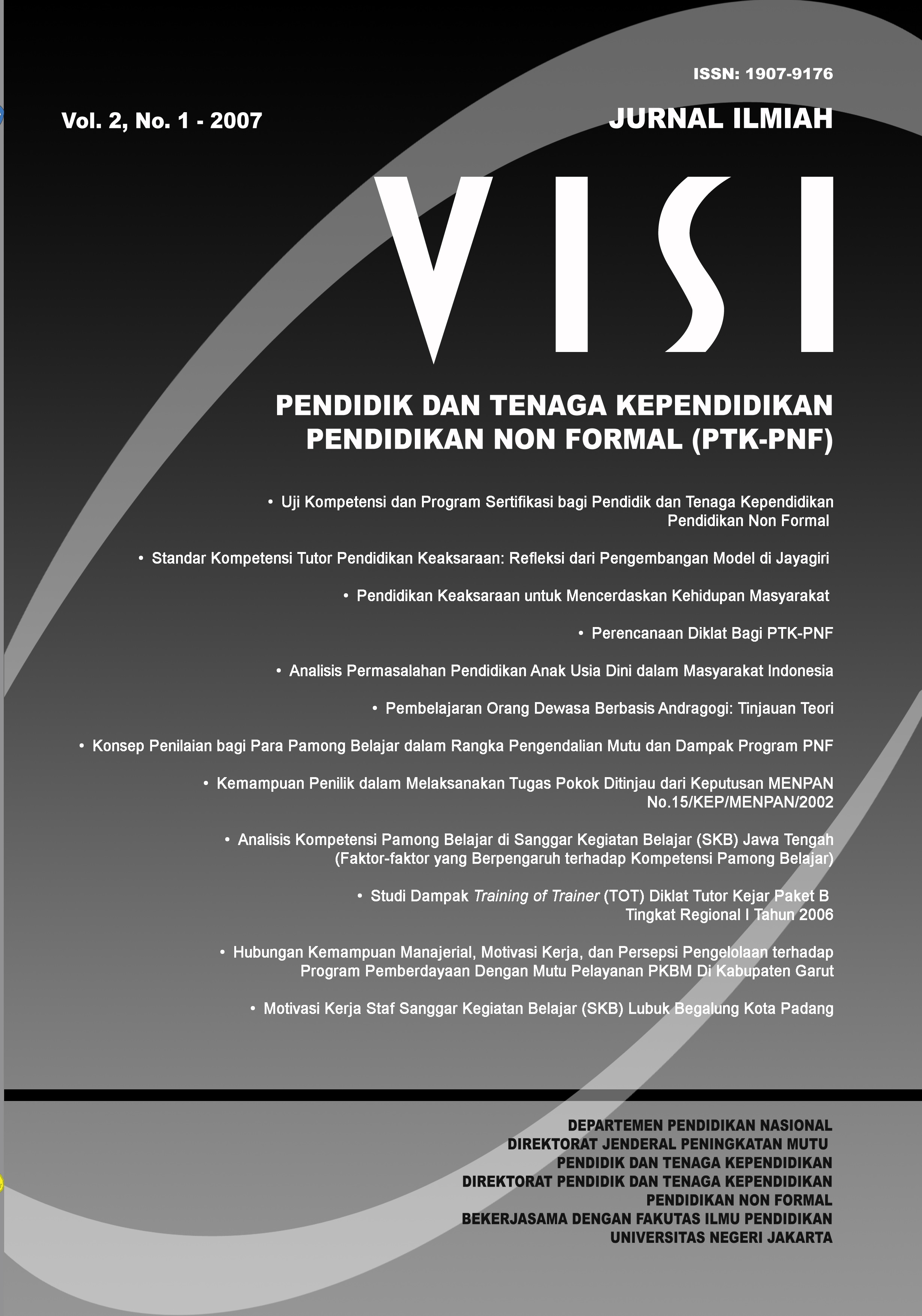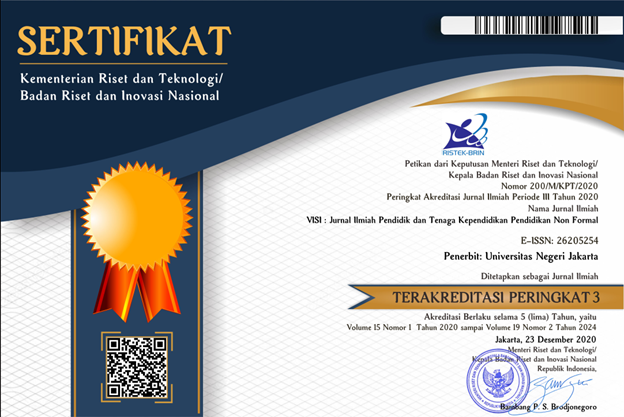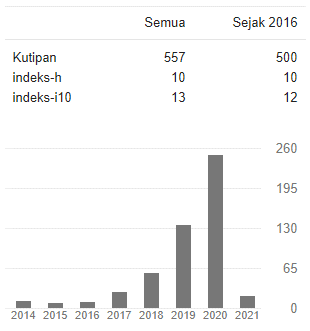PENDIDIKAN KEAKSARAAN UNTUK MENCERDASKAN KEHIDUPAN MASYARAKAT
DOI:
https://doi.org/10.21009/JIV.0201.3Keywords:
literacy education, youths and adults, cognition, development of human life conditionAbstract
Literacy/illiteracy is not a simple matter. It does not only show whether a person can read and write words and letters, but also whether a person can face complicated problems of human life. Illiterate persons usually have weaknesses in understanding their own problems comprehensively. They suffer from an inferiority state of mind. They usually feel less important than others as they are unable to solve their own problems. Literacy education for youths and adults as a movement to improve the human life condition, therefore, should not be understood in a technical level i.e. teaching reading and writing letters and words. Words are not empty. Words represent human thought about world and reality. They also represent the users’ desire to do something. So, literacy education for youths and adults must be designed to improve the learners’ cognition, and to develop a new perspective of self-consciousness in relation to the willingness to cope with the learners’ life problems. The youths and adults learning activities must be based on transformative perspective, as they have been involved in the social development. The learning activities must transform them to be active participants or agents in the social development. Literacy education indeed must be considered in a wider understanding and not in a simple one.
Downloads
Published
How to Cite
Issue
Section
License
Authors who publish with this Journal agree to the following terms:
- Author retain copyright and grant the journal right of first publication with the work simultaneously licensed under a creative commons attribution licensethat allow others to share the work within an acknowledgement of the work’s authorship and initial publication of this journal.
- Authors are able to enter into separate, additional contractual arrangementfor the non-exclusive distribution of the journal’s published version of the work (e.g. acknowledgement of its initial publication in this journal).
- Authors are permitted and encouraged to post their work online(e.g. in institutional repositories or on their websites) prior to and during the submission process, as it can lead to productive exchanges, as well as earlier and greater citation of published works.
- Users/public use of this website will be licensed to CC BY-NC-SA Creative Commons Attribution-NonCommercial-ShareAlike 4.0 International License









